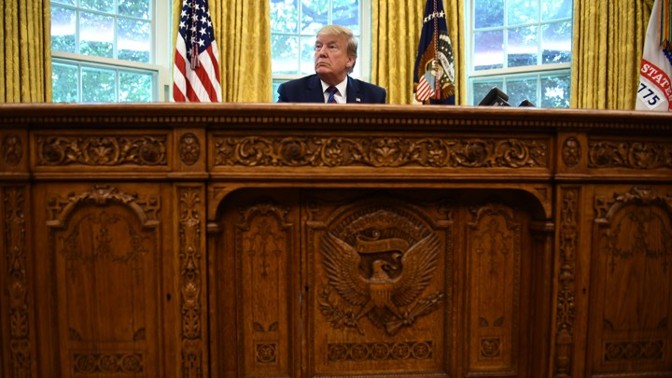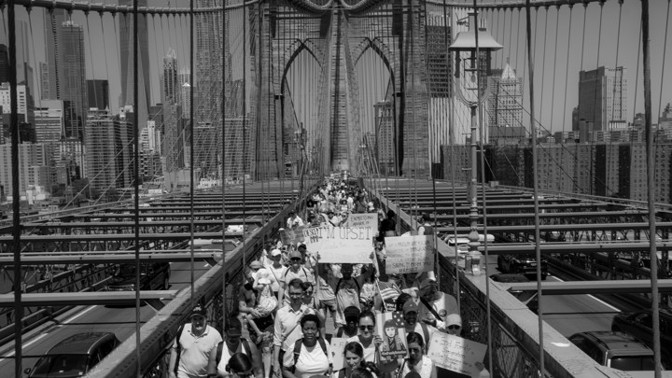Then this summer, the Mueller Report did come out, leading to a great deflation for them: While it didn’t “exonerate” Trump from any alleged wrongdoing, it also didn’t contain any specific, single smoking gun incident. Those Democrats dissatisfied with the report’s impact then wondered whether they might find a key witness among the procession of career diplomats who trekked to Capitol Hill to outline Trump’s alleged misdeeds on the Ukraine question. Not one of the testimonies changed GOP minds. And American voters remain split (though my colleague David Graham makes the argument that impeachment is actually incredibly popular).
3. Donald Trump is gonna Donald Trump. When Trump took office, some pundits were predicting a “pivot”—that moment when, finally, Trump would stop with the capricious tweets and start acting a bit more presidential (whatever that means now).
2019 basically put to bed any commentary about a pivot. As my colleague Peter Nicholas wrote, Trump’s behavior seems to only be getting worse, in part because he has no pressure valve to help with the stresses of the job, not golf, not meals out, not friends: “He has nobody around him. There’s nobody,” one person close to Trump told Peter.
And as Peter reported on Christmas Eve, Trump will probably happily settle for acquittal—and that’s that.
“A perfunctory trial and an end to this—that’s the preferred scenario,” said a White House official, who like others I talked with for this story spoke on the condition of anonymity. “I’m not going to sit here and tell you that there aren’t people the president would like to hear from—like the whistle-blower and Hunter Biden. But if the choice is ours, it’s Let’s wrap it up.”
We’ll be back tomorrow to close out the decade (!) with a few more reflections.
—Saahil Desai
*
« EVENING READ »
(CHRIS LEE / VII MENTOR PROGRAM / REDUX)
America’s most under-appreciated right? The right to assembly, John Inazu argues.
In the past few months, protesters in Hong Kong have engaged in a citywide strike. In Lebanon, mass protests led to the prime minister’s resignation. In India, nationwide protests have defied government restrictions on public gatherings. Meanwhile, protesters in other parts of the world remain forcibly subdued—such as in Chinese “reeducation” camps and Saudi prisons. These examples, reflecting a range of lawful and unlawful assemblies, and the denial of assembly altogether, reveal the importance and the risks of the right to do so.
*
Today’s newsletter was written by Saahil Desai, an associate editor on our Politics team, and edited by Shan Wang, who oversees newsletters. You can reply directly to this newsletter with questions or comments, or send a note to politicsdaily@theatlantic.com.
Your support makes our journalism possible. Subscribe here.
We want to hear what you think about this article. Submit a letter to the editor or write to letters@theatlantic.com.
Source link
 Black America Breaking News for the African American Community
Black America Breaking News for the African American Community


